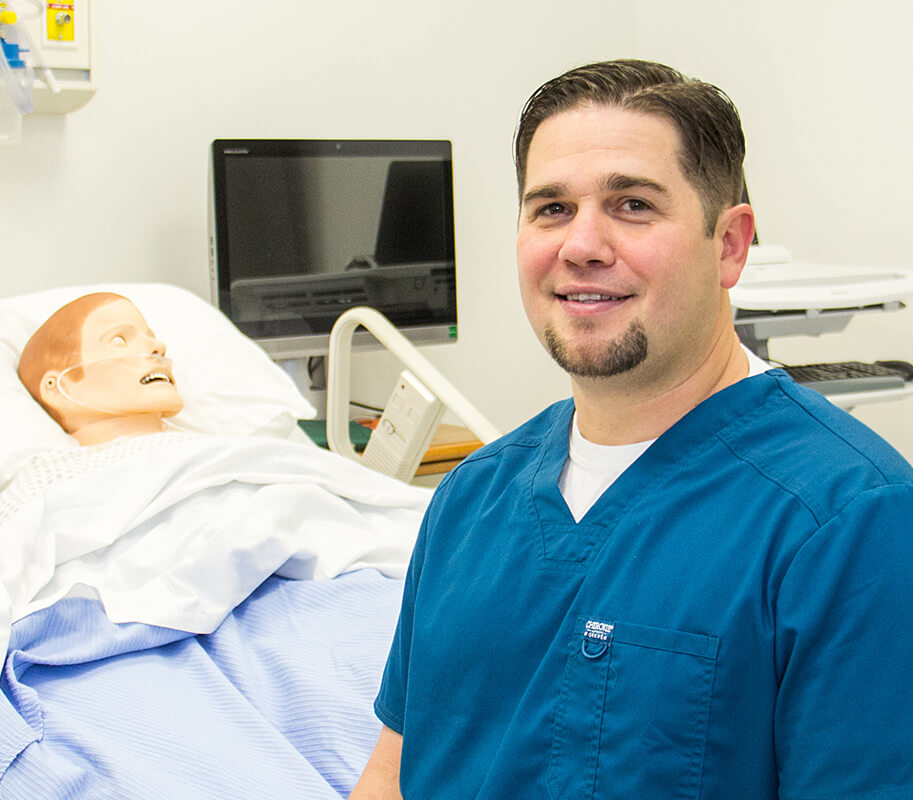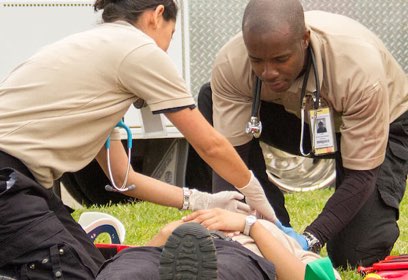
EKG Technician
If you have a compassionate heart and find patient care motivating, a career as an EKG technician is perfect for you.
The EKG Technician program trains students to become EKG technicians through a combination of classroom instruction and hands-on skills labs that prepare the student for employment in the health care setting.
This program teaches the fundamentals of cardiovascular anatomy and physiology. Topics include basic EKG procedures, interpretation of dysrhythmias and treatments.
The program prepares students to take the National Healthcareer Association certified EKG technician exam.
Program Details
Next Start Date
Sept. 2024
Learning Format
Hybrid
Program Length
Approx. 12 weeks
Let’s Connect!
 409-933-8645
409-933-8645 cealliedhealth@com.edu
cealliedhealth@com.edu
Career Insights
Occupational summary for EKG Technicians
55,980 Annual Job Openings
(2019)
17% Projected Growth
(2019-2029)
(ZipRecruiter)
$59,100 yr Median Salary / $28.41 hr
Additional Program Info
Applicants need a high school diploma or high school equivalency certificate.
Individuals without a GED are encouraged to contact Adult Education to get started.
Effective September 1, 2017, HB 1508 amends the Texas Occupations Code Section 53 that requires education providers to notify potential or enrolled students that a criminal history may make them ineligible for an occupational license upon program completion. NOTE: Criminal history checks are required for clinical experience purposes.
Should you wish to request a review of the impact of criminal history on your potential licensure prior to or during your quest for a degree, you can visit this link and request a “Criminal History Evaluation”: https://www.precheck.com/
This information is being provided to all persons who apply or enroll in the program, with notice of the requirements as described above, regardless of whether or not the person has been convicted of a criminal offense. Additionally, HB 1508 authorizes licensing agencies to require reimbursements when a student fails to receive the required notice.
Frequently Asked Questions
The EKG program length is 12 weeks (about 3 months).
The EKG program is offered once in the spring semester and once in the fall semester.
The national average for EKG Technicians is $43,001 according to Zip Recruiter.
Students must enroll in ECRD 1011 (Electrocardiography and Telemetry Monitoring) and EMSP-1050 (Introduction to 12-Lead ECG I). Contact the Continuing Education office at 409-933-8586 to register.
Electrocardiography and Telemetry Monitoring
ECRD-1011
This course will provide students with the knowledge and skills to perform 12-lead
EKG, and telemetry monitoring. Theory includes basic understanding of the anatomy
of the cardiovascular system and the electrophysiology and hemodynamics of the heart,
EKG recording techniques, rhythm analysis, documentation, care and maintenance of
equipment, and recognition of arrhythmias and cardiac emergencies. Emphasis is on
proper lead placement, interpretation, proper interventions by the cardiac technician,
and professionalism and patient's rights in the healthcare setting. 64 contact hours
are required.
Introduction to 12-Lead ECG I
EMSP-1050
The course will cover the interpretation of 12-lead electrocardiograms (ECGs) to identify
dysrhythmias, axis deviation and myocardial ischemia, injury, and infarction. It will
discuss the clinical significance of abnormalities. 21 contact hours are required.
The student will be eligible to sit for the National Healthcareer Association (NHA) Certified EKG Technician (CET) exam once all course requirements have been met. This includes requirements for ECRD 1011, EMSP 1050, and CVTT 1060. For questions regarding certification, please visit the NHA website.
Texas Public Education Grants (TPEG)
State legislation has made grant funds available to students with financial need for workforce and career training classes. Limited funds are available for persons who qualify to assist with payment of a percentage of tuition for vocational courses. These limited funds are distributed on a first come, first served basis for qualified applicants, and vary by course. Books are not included. This grant does not require repayment and is applicable for programs with tuition over $1000.
A FAFSA (Free Application for Federal Student Aid) application is required and takes
at least two weeks to process. The student must have an active college account in
Colleague to apply.
Visit our Continuing Education Grants page to apply.
COM (College of the Mainland) Foundation Scholarships
COM offers 100 scholarships, which full-time and part-time students can apply for each year to help pay for tuition and textbooks. Only one COM Foundation scholarship will be awarded to any student.
Scholarships are available for students in all majors, and most scholarships are $500 per fall and spring semesters.
A FAFSA (Free Application for Federal Student Aid) application is required and takes at least two weeks to process. The student must have an active college account in Colleague to apply.
Visit the Scholarships page to apply.
Financial Aid
All students applying for financial aid should first complete the FAFSA, the Free Application for Federal Student Aid. This information is used to determine whether you are eligible for federal grants, certain scholarships, and work-study programs. Learn more about the FASFA.
Visit the Financial Aid page for more information.
No refunds will be issued after a class has started. A 100% refund will be given if the student submits a written, signed request for a refund no later than the 1st day of the course. Students will receive a 100% refund if class is canceled by the Continuing Education Department. Course tuition/fees are not transferable from one class to another or from one student to another.
The college will cancel a course that lacks sufficient enrollment three (3) business days prior to the class start date. When a course is canceled, every effort is made to notify all registered students promptly. A full refund is processed automatically. COM’s first form of communicating class cancellations is via email.
Disclaimer: The courses in this schedule will be taught as listed provided there are sufficient students enrolled in each section to justify the course offering. The College will cancel a course that lacks sufficient enrollment three working days prior to the class start date. The schedule of time, room and instructor reflect the intention of the College at the time the schedule is published. These are subject to change and their listing in the schedule is not an assurance to students that they will be taught exactly as listed.


